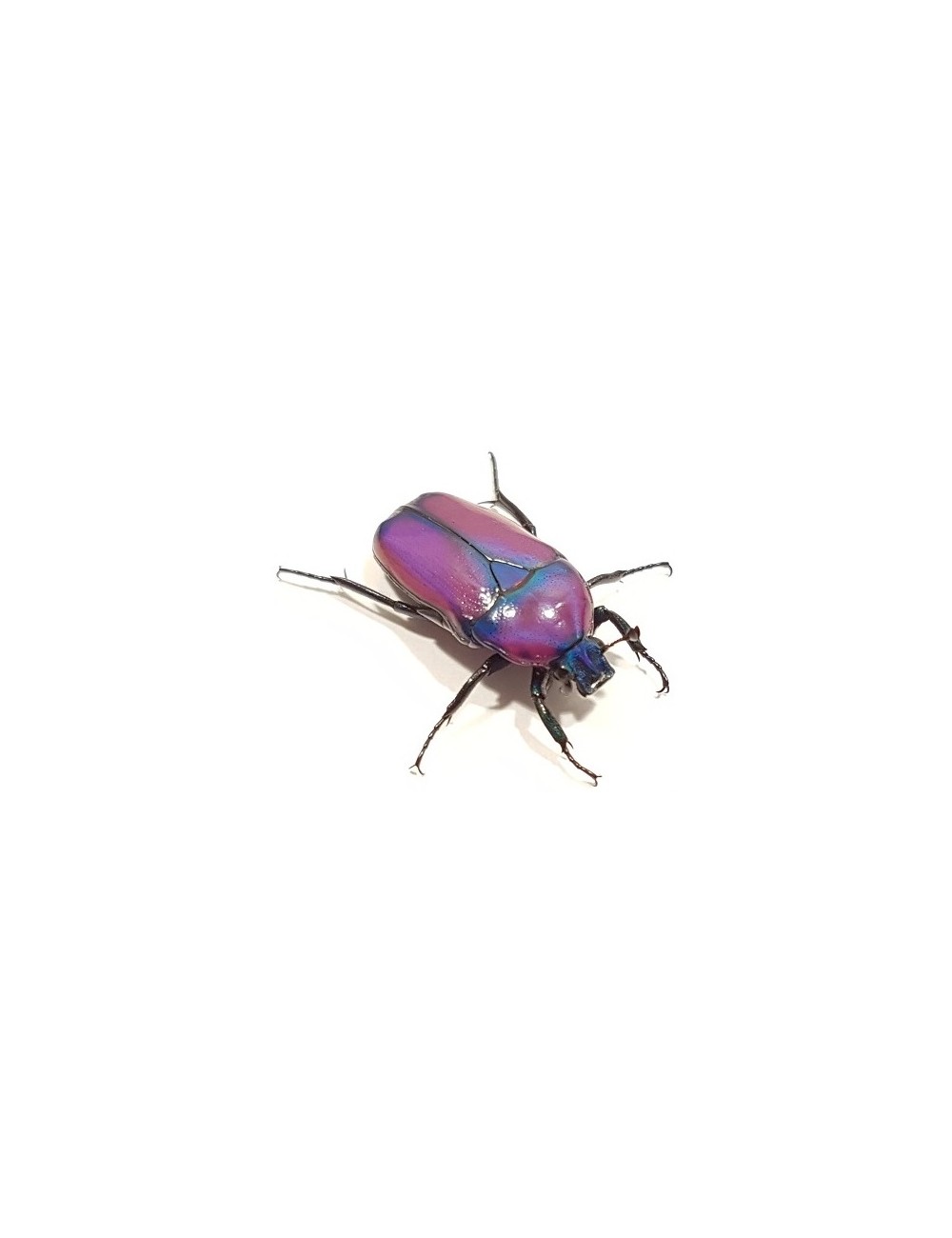- New


Contents: 1 larva L2-L3 (larval stage) - German captive bred
Chlorocala africana oerzeni is an impressive species of beetle from the rose chafer family (Cetoniidae). This species originates from Africa and is characterised by its shimmering metallic purple carapace colouring, which can appear golden or bluish depending on the light conditions.
Size
The adult beetles reach a body length of around 20 to 25 millimetres.
Generation time
Under optimal conditions, the generation time from egg laying to adult beetle is around 6 to 8 months. Development takes place over three larval stages (L1-L3), the pupal stage and finally the hatching of the adult beetle.
Characteristics
This species is relatively robust and is often kept as a display beetle in terrariums. They are diurnal and feed in the wild mainly on sweet plant juices and ripe fruit. In the terrarium they like to eat bananas, melons or other soft fruits.
Breeding instructions
Terrarium: A suitable terrarium should be at least 30 x 20 x 20 cm in size and have good ventilation. The floor height should be around 10 cm.
Substrate: A substrate of deciduous forest humus and some moss is ideal for rearing larvae. It should be kept regularly moist, but not wet.
Egg laying and larval care: Adult beetles lay their eggs in the soil. The larvae hatch after about 2 to 4 weeks. These should be kept in a sufficiently large container with a loose substrate containing enough organic material to provide the larvae with a food source.
Pupa phase: After the last moult, the larvae pupate in a pupal chamber, which they form themselves from the substrate. During this time, the substrate should remain as undisturbed as possible.
Feeding of the adults: The adult beetles prefer soft fruit or beetle jelly, which is suitable for feeding rose beetles.
Translated with DeepL.com (free version)
Chopped and milled leaf litter is a bacis substrate for many invertebrate insects like beetles, millipedes, isopods, slugs and others.
Composition:
Beech and oak leaf litter (& smaller pieces of brances), chopped, milled
Analytical composition:
56,1 % humidity, 23,9 % crude fiber

Contents: 1 larva L2-L3 (larval stage) - German captive bred
Product Comments
Your review appreciation cannot be sent
Report comment
Report sent
Your report cannot be sent